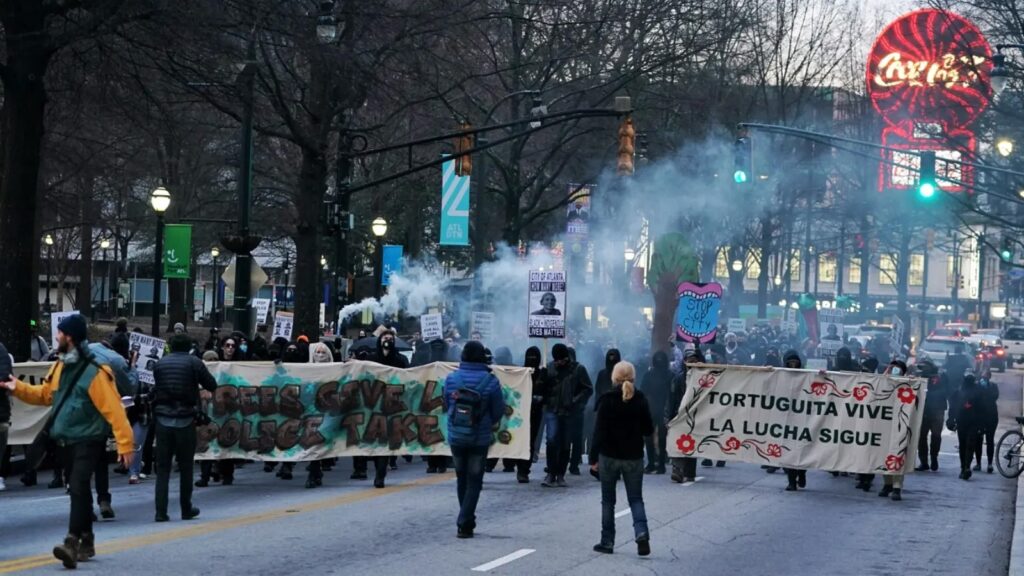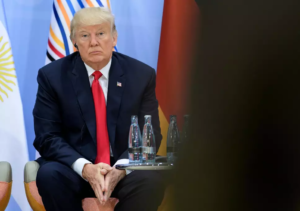
In the current climate of intense debate surrounding the right to protest and freedom of speech, Atlanta stands out as a focal point as concerning precedents are being established that change the landscape of these fundamental rights.
Activists are fighting the construction of a $90 million, 85-acre militarized police facility in the Weelaunee Forest of Atlanta, Georgia dubbed “Cop City” and what began as an issue of local concern has been suppressed by extreme government overreach, voter suppression and police brutality. Cop City’s nickname comes from a plan within the construction, to build a mock city in order for police to conduct riot training, urban warfare, bomb simulations and more.
On January 18, 2023, police shot and killed environmental land defender Manuel Esteban Paez Terán, known as Tortuguita, who was camping in the forest in protest to the construction. Police claim Tortuguita shot and wounded an officer and was killed in self defense, but in body cam footage later released, officers can be heard discussing that the officer was wounded by a fellow state trooper. Independent autopsies have revealed that Tortuguita’s hands were in the air and was most likely in a seated and cross legged position when 14 gunshots entered their body and took their life. The Georgia Bureau of Investigation has failed to release body cam footage of the killing, the government’s autopsy report, or any ballistics evidence.
In August 2023, activists submitted a petition to the city council with over 100,000 signatures of Atlanta residents who oppose the construction, and the city responded by enacting the process of ‘signature matching’ which only validates signatures that are identical to those registered with the state. The purpose of the petition was to force the question of allowing construction on a ballot.
As it should be in a so-called democracy, the people of Atlanta should be able to decide on the construction of such a facility. Signature matching is claimed to prevent voter fraud but has been criticized by many voting rights groups as a method of voter suppression and discrimination against already marginalized voters.
Since then, the city has also charged 61 activists on Racketeering Influenced and Corrupt Organizations Laws (RICO), three bail fund organizers with money laundering, and five activists are facing charges of domestic terrorism. The purpose of RICO charges are to target organized crime groups such as the mafia, not to punish the fundamental right to protest. The indictment prosecutes mutual aid, zine distribution, speech, and minor civil disobedience as felonies. This extreme government overreach is setting an alarming and terrifying precedent for punitive intimidation tactics against those fighting for justice in civil and social justice issues. The money laundering charges were levied against leaders of the Atlanta Solidarity Fund, which helps activists secure bail and legal counsel.
These grossly exaggerated actions send a clear warning to anyone expressing their dissent with the government’s decisions. As the ‘Stop Cop City’ movement grew larger and attracted supporters across the country, the city has done everything it can to suppress and terrorize the leading activists. The ACLU wrote, “there is legitimate concern that Georgia’s sweeping indictment could form a playbook for other prosecutors and state officials seeking to stifle political dissent.”
There are plans for a total of 47 cop cities to be built across the country, ranging from plans in progress to approved projects including facilities in Yonkers and Newark. The only states without such projects are Vermont, Wyoming and North Dakota. All of these proposals are a response to the nationwide 2020 anti-police protests in response to the murder of George Floyd and police brutality against African Americans in general.
While the connection may not be explicitly acknowledged, the rapid proliferation of these projects in the aftermath of the protests leaves little doubt about their underlying motives. The encroachment on our rights and freedoms is alarming, and it demands immediate and concerted action to safeguard the future of democracy in America. It is imperative to recognize the gravity of this situation and unite in the movement against militarized police and the violation of civil liberties.



